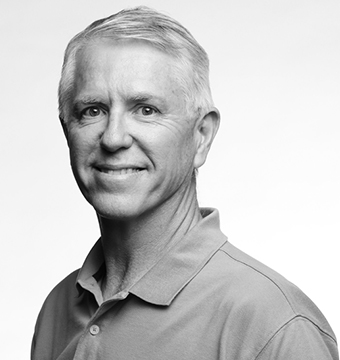
I’m on a mission.
I want to get to the bottom of why therapists struggle to talk about their fees.
When I mentor therapists, setting fees is one of the biggest hurdles for therapists to overcome. I’ve observed that therapists have many hang-ups about money that hinder our professional freedom.
Don’t get me wrong. Even though I’ve been at this for a long time, I still hesitate or want to make excuses for my fees.
However, somewhere along my journey, my thinking about helping people and making money changed. Now I no longer feel ashamed for making a good income as a therapist or mentor.
EMBRACE A BOTH/AND MINDSET
Probably like you, I entered this profession to help people. I didn’t want to be a therapist to become rich. However, I did have a dream of being my own boss, working hard, and being rewarded for it.
Through years of managing a private practice, I began to understand that my mindset didn’t have to be EITHER/OR thinking. I could adopt a non-dualistic mindset of BOTH/AND.
I didn’t have to help people OR make good money.
I could help people AND make good money.
They weren’t mutually exclusive. In reality, serving people and making a profit usually went hand in hand.
Letting go of dualistic thinking was the first step in reconciling two seemingly opposite concepts: serving others and making a profit.
DEVELOP A NON-DUALISTIC MINDSET
“Nothing is either good or bad, but thinking makes it so.” ~Shakespeare
When I think dualistically everything is either/or, right or wrong, or good or bad.
If I see everything in black and white, then I miss all the shades of grey between the two poles.
Richard Rohr describes nondual thinking as:
“Our ability to read reality in a way that is not judgmental, in a way that is not exclusionary of the part that we don’t understand…Stay with that necessary dilemma, and it can make you wise.”
If we see the concept of service to others “better” than the idea of making a profit or vice versa, we create an internal dilemma.
I’ve worked with many well-meaning therapists who feel conflicted about making money from someone else’s need. They wrestle with these types of questions:
“How can I be a person who helps others and, at the same time, make money off them?”
“How can we charge our full fee if their resources are limited, and the services we offer are vital to their wellbeing?”
“Isn’t helping others pure and good while profit is somehow tainted and evil?”
Each of us has to resolve the inner conflict that often surrounds helping people and making a living. Repressing the conflict won’t make it go away. You’ll find it rearing its ugly head in your attitudes and conversations throughout your career.
PRACTICAL STEPS TO GET THERE
There is no right or wrong way (dualistic thinking) on how to reconcile in your mind/heart serving patients and charging fairly.
At some point, you’ll have to find a way that makes sense to you. Here are a couple of suggestions to get started:
- Learn more about dualistic and nondual thinking. Most therapists are adept dualistic thinkers. We know by analyzing, comparing, and differentiation to be good therapists. Expand your ability to employ nondual thinking when necessary.
- Separate the caring you have for your patients from the knowledge and skills you possess. Believe that you charge for your skills, not your caring.
- Reflect on the time and money it took for your education and the value you provide. If your business or the one you work for doesn’t make a profit, you will no longer be around to provide the service.
I’d love to hear your thoughts about therapists and money in the comments below. If you want to email me, I can reach me at heypaul@paulpotterptcom

––– Comments
Paul Potter
Commented • September 20, 2019
Wow!! What a great comment! Sam. thanks for contributing. Two great examples of patients who chose to reward you beyond what you charged. Very cool and an excellent way to illustrate the main point of the article. Thanks and keep on delivering remarkable care.
Dr. Samuel Adedayo
Commented • September 20, 2019
Wow!!! What a great post. Thanks Paul for sharing. This challenge of setting fee for our patients looks global. I am a Nigerian PT, presently practicing in Nigeria and I have observed that many of my colleagues if not all face similar challenge. I remember there was one of my patients who decided on his own to pay more than what I charged because he felt I was putting in more services than he expected. Not long ago, another patient with lumbar spinal stenosis who happened to be a physician handsomely rewarded me after paying for his treatment. I asked him why he had to do that since he had already paid for the treatment. His explanation was that, if he had gone for surgery, the payment would have been much higher than that and there's no how if he would be sure if the surgery would take care of the symptoms or not. I think summarily, as stated by Paul, we need to care for our patients, but our charges must be good enough to be commensurate to our knowledge and skills. Again, thanks Paul for this enlightening write up. Have a great day.
Paul Potter
Commented • September 10, 2019
Glenda, thanks for sharing your two real examples of trying to determine what to charge and your own story about affordability. You illustrate why I thought it best to begin the discussion with our worldviews and dualistic thinking. Thanks again
Glenda Labine
Commented • September 7, 2019
I am convinced that I am a poor evaluator of ability to pay fees. There have been two patients in my practice that looked like they may have difficulty managing fees. One had recently sold a motel up north and showed up with a pocket full of cash to pay and he was very content with the services provided and the outcome. The second patient had through the course of treatment finally admitted to trying the Back Clinics of Canada using decompression treatment and spend over $5000 without any symptom relief. She was so happy to find a practitioner who could assess the problem and provide her with the relief and improved function that she was looking for all along. I do offer discount treatments of 30 percent for all young people persuing education and I don't keep them on my wait list but otherwise I just focus on doing what I do best solving pain and physical dysfunction puzzles and I wait for patients to raise the issue of affordability with me. Only one patient in the past 20 years has done so and we worked out a solution that involved help from her patients and myself.